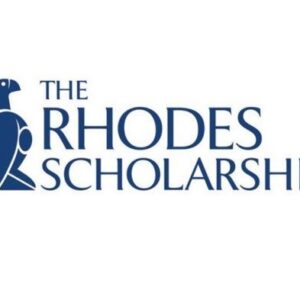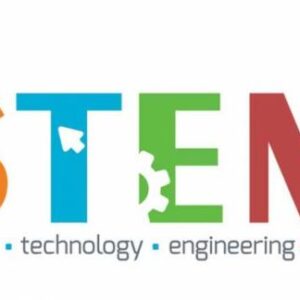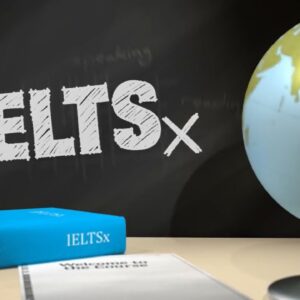Headline:
Introduction
Embarking on a PhD journey in Europe can be life‑changing. You imagine world‑class research, vibrant international communities, and doors opening to global opportunities. Yet the cost of living, tuition fees, and visa hurdles often stand in the way.
This guide solves your pain points:
- Fully funded pathways: Avoid out‑of‑pocket expenses
- Clear visa procedures: Step‑by‑step checklist to secure your European visa
- Actionable timeline: Know exactly what to do, and when
Jump in to discover the best government‑sponsored PhD funding programs in Europe, get insider tips for applications, and find out how to breeze through the visa process.
Obtaining a fully funded PhD scholarship in Europe means: you receive a salary or stipend that covers all your research costs and living expenses. Most top programs also provide:
- Invitation letters for visa applications
- EU/Schengen research residence permit guidance
- Relocation allowances (travel, housing deposit)
Key benefits:
- No tuition fees or research costs out of pocket
- Health insurance and social contributions covered
- Networking and training through EU research networks
In the sections below, you’ll find details on each major program, including application links and visa information.
Best European Government PhD Funding Programs
Below are the highest‑impact, ranking government‑sponsored funding schemes for doctoral candidates in Europe:
Erasmus Mundus Joint Doctorate (EMJD)
Erasmus Mundus Joint Doctorate programs deliver full funding for partnerships of top European universities.
- Funding: Monthly stipend of €1,800–€3,000 plus EU contribution to research costs
- Duration: 3–4 years
- Visa Support: EMJDs provide a letter of acceptance and help with Schengen visa procedures
- Where to apply: Erasmus+ EMJD Catalog
Why you should consider EMJD:
- Research stays across multiple countries
- Comprehensive training and regular workshops
- Built‑in mobility for language and intercultural learning
Marie Skłodowska‑Curie Doctoral Networks (MSCA) with Visa Assistance
MSCA Doctoral Networks foster international research consortia. They’re among the most prestigious EU-funded schemes.
- Funding: Attractive living allowance (~€4,600/month) plus mobility & family allowances
- Duration: Up to 3 years
- Visa Support: MSCA fellows get detailed country‑specific visa guidance and invitation letters via EURAXESS
Top features:
- Cross-sector placements (academic & non‑academic)
- Training in transferable skills (entrepreneurship, communication)
- Alumni network through the Marie Curie Alumni Association
Swiss Government Excellence Scholarships for Doctoral Candidates
Switzerland’s Excellence Scholarships attract top international talent.
- Funding: CHF 1,920–2,160 per month
- Duration: 12–36 months
- Visa Support: Scholarship letter recognized by Swiss embassies worldwide
- Apply via: SERI Official Site
Highlights:
- Full health insurance contribution
- Access to Swiss research institutions and industry labs
- Network of fellows for cross‑disciplinary exchange
DAAD Research Grants for Doctoral Candidates in Germany
The German Academic Exchange Service (DAAD) funds PhD work across all disciplines.
- Funding: €1,200–1,500 monthly stipend plus travel allowance
- Duration: 1–3 years
- Visa Support: DAAD issues an official award letter for German national visas. They also provide visa guidance via their website.
Why DAAD stands out:
- No language requirement if research is in English
- German language courses can be funded separately
- Strong emphasis on research stays and conferences
French Government Eiffel Excellence Scholarship Programme
Eiffel Scholarships are France’s flagship government scholarships.
- Funding: Monthly allowance of €1,400–1,700
- Duration: 12–36 months
- Visa Support: Erasmus Straightforward procedure: Eiffel scholars receive a support letter recognized by French consulates
- Apply here: Campus France Eiffel Program
Perks include:
- Research grant for thesis printing and defense
- Extended health coverage under the French social system
Portuguese FCT Doctoral Grants
Portugal’s Fundação para a Ciência e a Tecnologia (FCT) provides competitive grants.
- Funding: ~€1,200 per month
- Duration: 3–4 years
- Visa Support: FCT partnership with Portuguese embassies for D2 Research Visa assistance
- Details: FCT Grant Regulations
Advantages:
- Strong collaborations with industry
- Possibility of grant extension for thesis completion
Spanish FPU Doctoral Scholarships
The Spanish Ministry of Education’s FPU program supports research talent.
- Funding: €1,150 per month
- Duration: 4 years (with extension options)
- Visa Support: FPU award letter speeds up Student/Researcher Visa issuance
- Learn more: FPU Call Info
Key notes:
- Teaching duties possible for extra income
- Integration with Spanish research networks
Comparison Table: Top PhD Fellows & Visa Perks
| Program | Funding (€/CHF/mo) | Duration | Visa Assistance | Link |
|---|---|---|---|---|
| Erasmus Mundus Joint Doctorate | 1,800–3,000 | 3–4 years | Schengen invitation | EMJD Catalog |
| MSCA Doctoral Networks | ~4,600 | ≤3 years | Via EURAXESS guidance | EURAXESS MSCA |
| Swiss Excellence (PhD) | 1,920–2,160 CHF | 12–36 months | Swiss embassy letter | Swiss Government Scholarships |
| DAAD Research Grants (Germany) | 1,200–1,500 | 1–3 years | DAAD award letter | DAAD Scholarships |
| Eiffel Excellence (France) | 1,400–1,700 | 12–36 months | French consulate letter | Campus France Eiffel |
| Portuguese FCT Doctoral Grants | ~1,200 | 3–4 years | D2 Research Visa support | FCT Grants |
| Spanish FPU Scholarships | ~1,150 | 4 years | Student/Researcher Visa | FPU Info |
How to Apply: Step‑by‑Step Action Plan
Follow these actionable steps to secure your government‑sponsored PhD fellowship and research visa:
- Identify your research interests and match with program focus
- Check eligibility & deadlines on official program websites
- Draft your research proposal tailored to each call
- Secure an academic host or consortium partner
- Prepare supporting documents (CV, transcripts, publications)
- Submit fellowship application via online portals
- Receive award letter and confirm acceptance
- Apply for your visa: use award letter, proof of funds, health insurance
- Plan your relocation: book flights, housing, and orientation
- Arrive & register with local authorities for residence permit
Pro tip: Set calendar alerts 3 months before each deadline to avoid last‑minute rush.
Essential Documents for PhD Visa Application
When you receive your scholarship award letter, gather the following for your research visa application:
- Valid passport (≥12 months validity)
- Official award letter with stipend details
- University admission/hosting agreement
- Proof of health insurance (travel or national)
- Accommodation confirmation (rental contract or dorm letter)
- Evidence of financial stability (scholarship invoice or bank statements)
- Criminal record check (where required)
Note: Requirements vary slightly by country; always consult the consulate’s website for precise lists.
Tips to Maximize Your Chances
- Start early: Some programs open calls a year in advance
- Network: Reach out to alumni via LinkedIn or the Marie Curie Alumni Association
- Customize: Tailor every research proposal to the specific call priorities
- Polish your CV: Use the Europass template for consistency
- Practice interviews: Some programs require panel interviews (e.g. DAAD)
- Proofread: Have peers and mentors review your application
Frequently Asked Questions
Q1: Can I apply to multiple programs at once?
Yes. But read each call’s exclusivity clause—some require sole application.
Q2: Do I need to know the local language?
Most projects accept English‑only proficiency. However, learning basics of the host country’s language improves daily life.
Q3: How long does the visa process take?
Visa processing ranges from 4 to 12 weeks. Apply as soon as you get your award letter.
Q4: Can family members join me?
Many fellowships include family allowances (MSCA, EMJD). Check if your grant covers dependent visas.
Q5: Are there age limits?
Most do not impose strict age limits, but check each program’s eligibility criteria.
Conclusion: Seize Your PhD Dream in Europe
With the right fellowship and a clear visa roadmap, you can turn your PhD ambition into reality. You now have:
- A curated list of top government‑sponsored PhD programs
- A comparison table to pick the best fit
- An actionable, step‑by‑step plan for applications and visas
Next steps:
- Bookmark the program links above
- Draft your shortlist of 2–3 calls
- Set milestone alerts in your calendar
Your future lab bench, interdisciplinary network, and European research career are waiting. Start your journey today!






